INDIA’S TOP AND WORLD’S BEST MARBLE, GRANITE AND STONE COMPANY
Marble, Granite and Stone:
What’s the Difference
Marble, Granite a/nd Stone:
Marble and Granite and Stone all are Precious gift of Mother Nature, Cozi and Charming, beautiful, highly sought-after Flooring, Elevation, Decoration,
Countertops,
Landscaping,
Handicraft,
materials. All Marble, Granite, and Stone have their own attributes. Weighing the pros and cons before deciding on one or the other for your home, villa, hotel, resort, restaurant, hospital, school, college, university, mall, tower, complex, theater, airport, industry, office, community hall, marriage hall, township, and the cranky project is important. So, what exactly is the difference between Marble, Granite, and Stone?

Marble:
Marble Most Beautiful surface material
From Tajmahal to Modern home Marble is the most popular building material for the construction industry.
Marble typically has veining, plain, flawless, designer, figurative, diamond shape, state line, wonder, unique, Cozi, charming, perfect, classic, a one, rare, best, bold, beautiful, pretty, precious, Natural, loving, silky, building material for the construction industry from a long time.
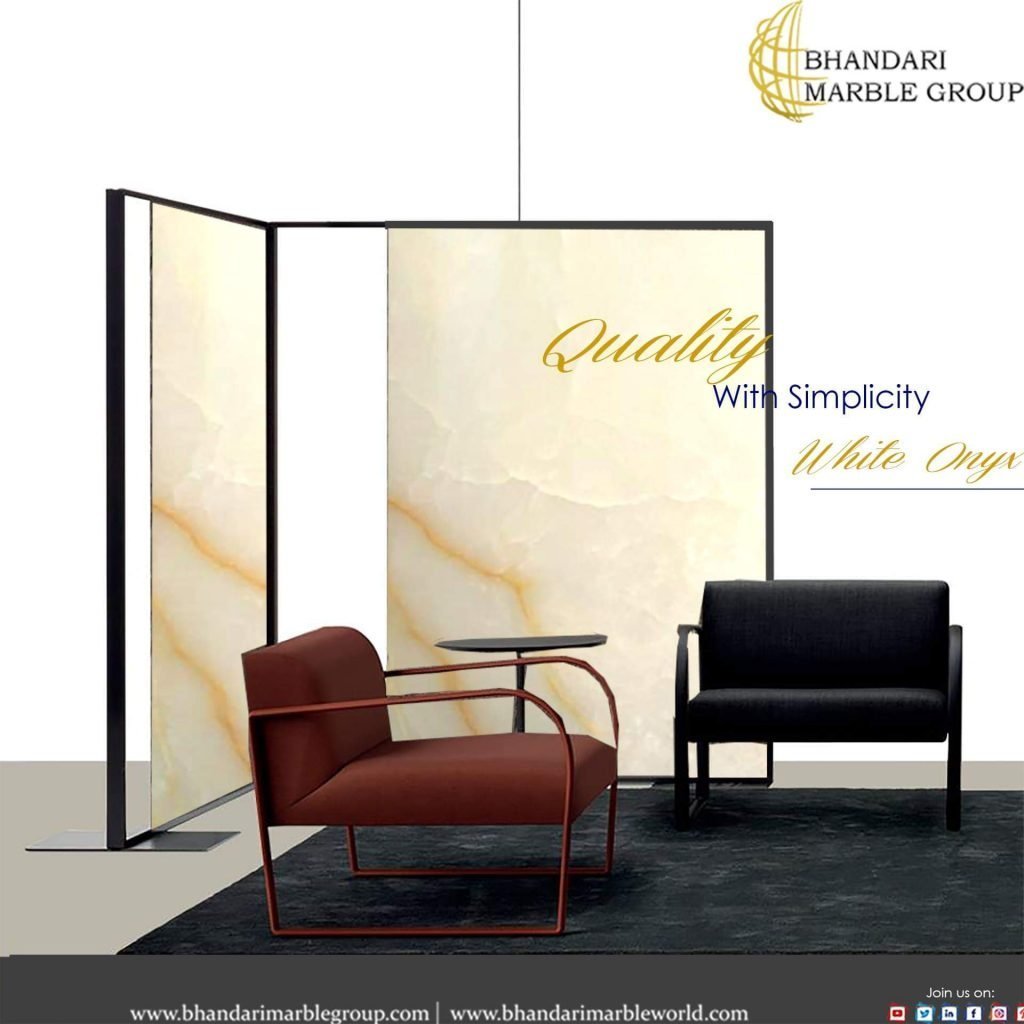
Marble is a metamorphic rock composed of carbonate minerals, most commonly calcite or dolomite. Marble is typically not foliated, although there are exceptions. In geology, the term marble refers to metamorphosed limestone, but its use in stonemasonry more broadly encompasses u metamorphosed limestone. Marble, granular limestone or dolomite rock composed of calcium-magnesium carbonate that has been under the influence of heat, pressure, and aqueous solutions. Commercially, it includes all decorative calcium-rich rocks that can be polished, as well as certain serpentines.
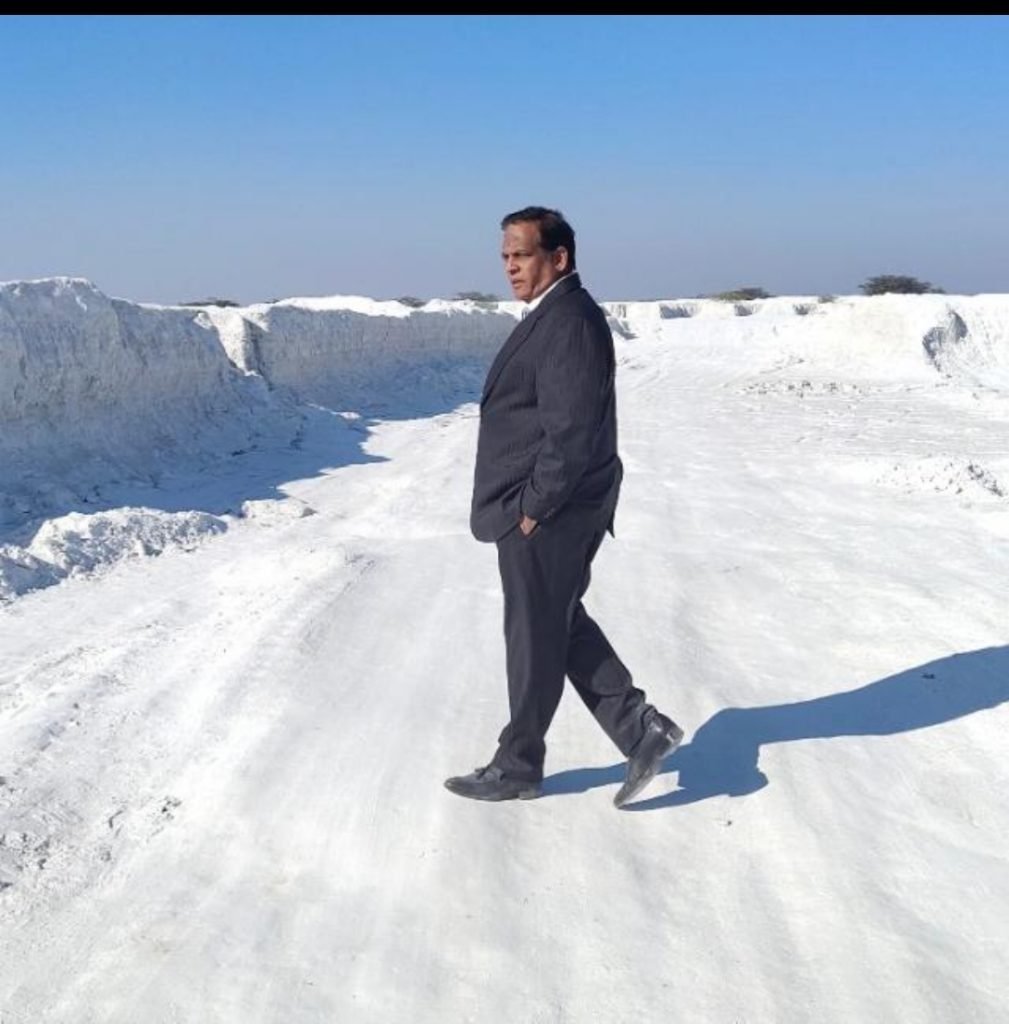
Very few rocks like marble have as many uses. It is used for its beauty in architecture, interior designs, landscaping, and sculpture. It is used because it is an abundant, low-cost commodity in crushed stone prepared for construction projects. Marble has many unique properties that make it a valuable rock in many different industries. Marble is a metamorphic rock, made of re-crystallized minerals primarily calcite and dolomite. Marble can be a material on its own, or as a host rock for gemstones such as ruby, sapphire, spinel, and more gemstone specialist treat as marble is a gemstone in 84 Ratana.
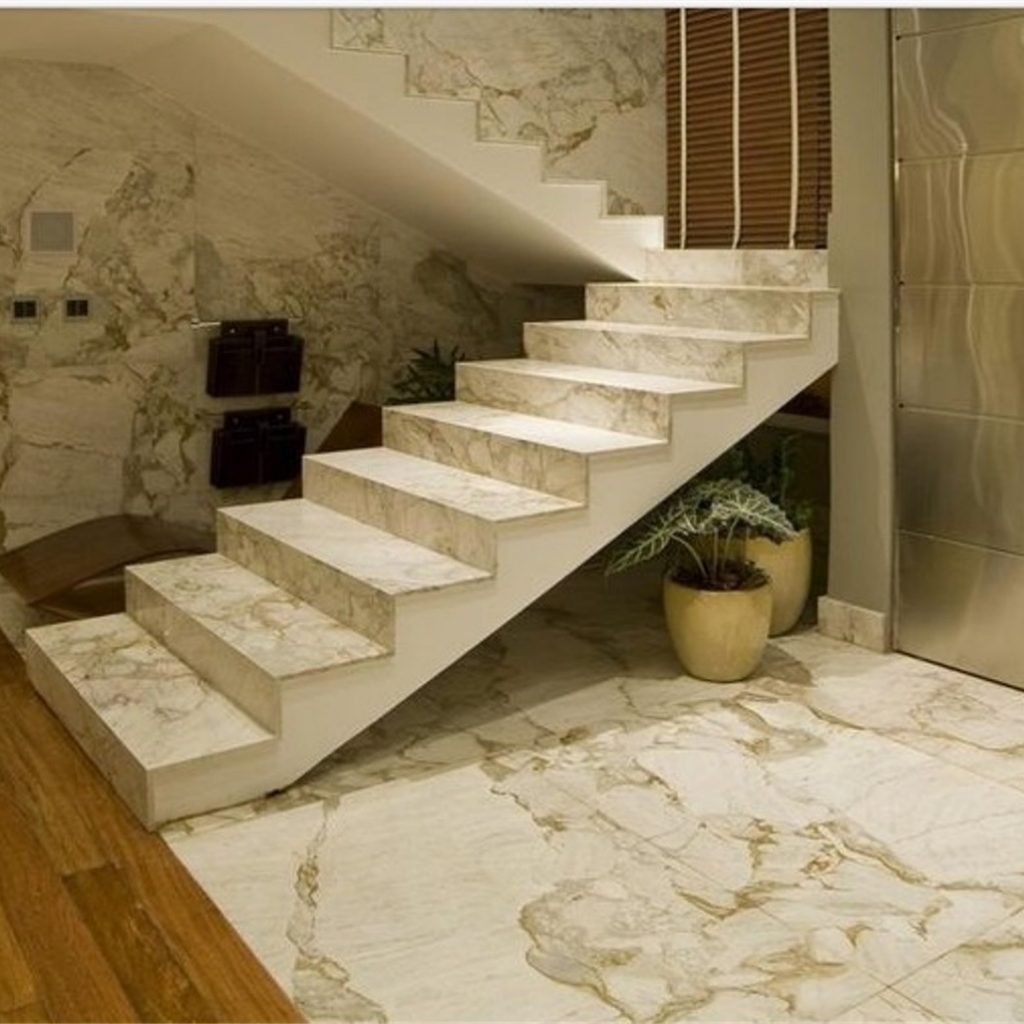
White Marble
We are a renowned manufacturer of white marble in India. It is a leading name in white marble suppliers. We offer a wide range of white marble with assured quality and the best price in the market. White marble slabs are one of the best options for flooring material due to its beautiful and pure look. If you choose white marble for your home or any commercial space, you get a number of options to select as white marble has a varied range. The Morwad Marble, White Morwad Marble, Makrana Marble, Makrana White Marble, Statuario Marble, Indian Statuario Marble, Opal White Marble, Rajnagar White Marble, Rajnagar Marble, Makrana Marble, Makrana White Marble, Dungri Marble are the best sellers in the white marble range. They are very popular in the market because of their fine finish, pure white color, and smooth texture.

Italian and Indian marble is the most likely choice for home, villa, hotel, Resort, collage, mall, tower, hospital, office, etc. as the design, color and purity adds elegance and create serenity in the atmosphere. It also gives a feel of wider space. You can try the Italian and Indian marble for flooring, elevation, decoration, countertops, landscaping handicrafts, and for wall cladding as well. Else you can try mixing Italian marble with Indian marble or any other natural stone for a different yet pretty look. The range of Italian marble and Indian marble. we have is best in the industry and pocket friendly as well. So if you are planning to build a new abode or just thinking to add some more room to your home or office, try our Italian marble and Indian marble.
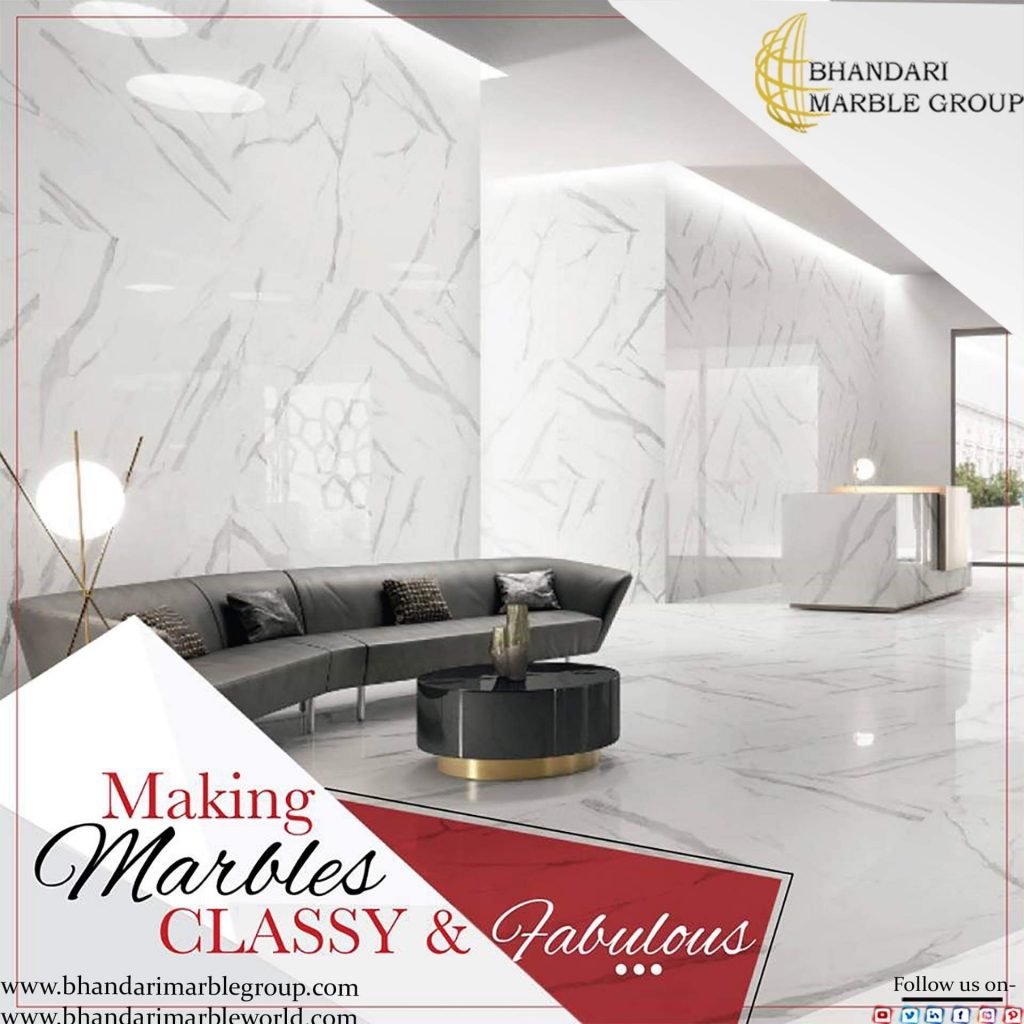
If you are planning to bring home this resilient stone then you can check below the top and best Italian and Indian marble for your home.
Statuario marble,
Calacutta marble,
Carrara marble,
Makrana White Marble.
Banswara White Marble.
Vietnam White Marble.
Michel Anglo White Marble.
Wonder Marble etc. All marble of a certain color looks about the same. But there are differences that stand out when you know what to look for. It’s important to know those differences when you are looking for just the right type of marble. Here are a few to consider in the marble-like Italian marble, Indian marble, and Imported marble.
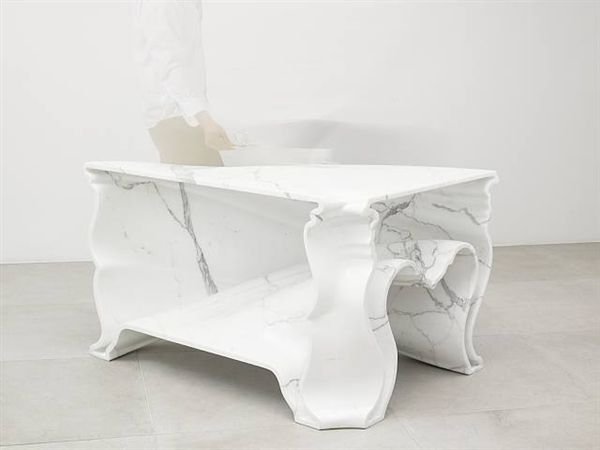
Our Engineers, Architects, Interior Designers, and customers at Great Lakes Granite and Marble love it for its subtle color variations and beauty, which create a uniquely classic look. Marble contains rich crystals and comes in such shades as white, black, beige, red, cream, charcoal, green, rose, yellow, blue, pink, brown022, gray, etc. Bed Marble Alternatives
Quartz. If you’re looking for a more affordable option than marble, quartz and tiles are one of the first options that you should consider but they are made from chemicals and harmful to health.
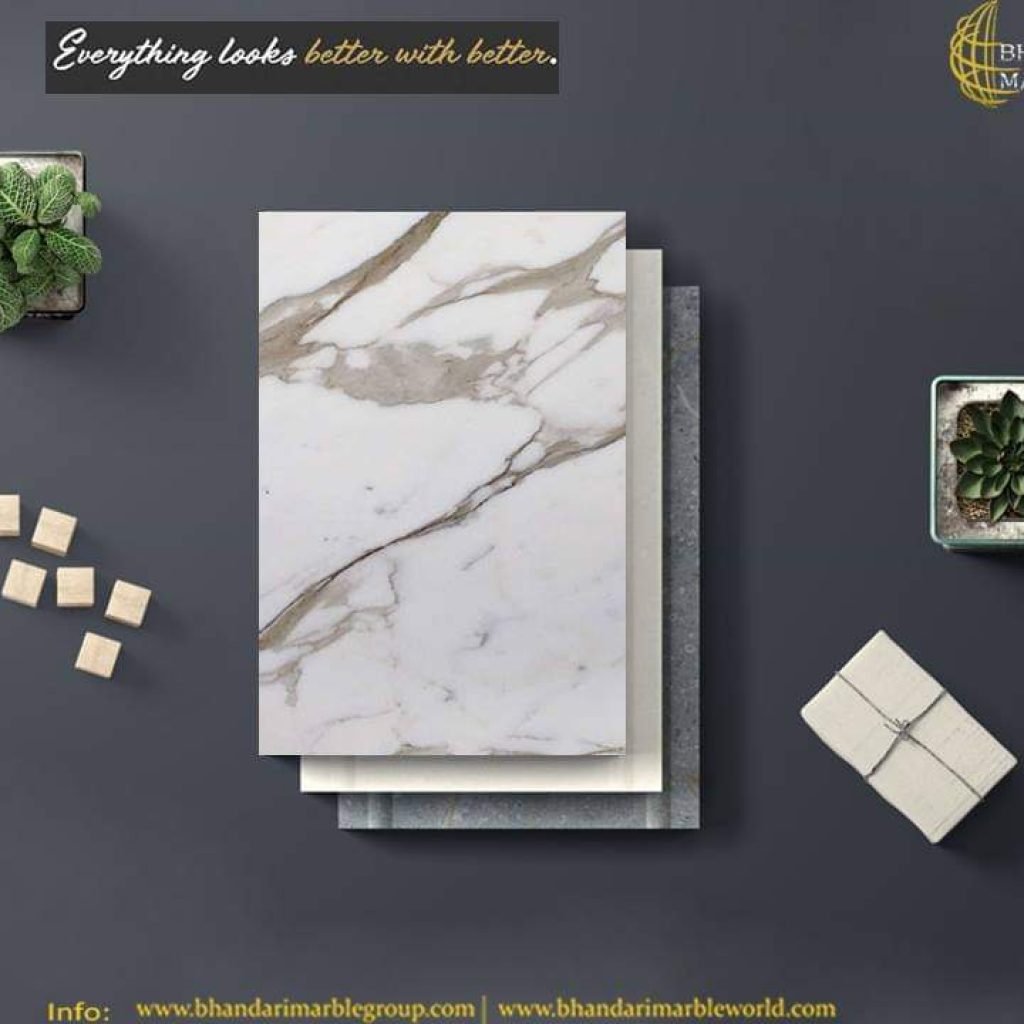
If you may want to check out the Top Marble below:
White Statuario Cararra Marble– White Statuario Cararra is by far the world’s most popular white marble.
Calacatta Gold Marble-
Michel Anglo Marble –
Carrara Marble
White Makrana marble
Vietnam White Marble. Italian and Indian marble is considered to be superior by many due to its purity, durability, and beautiful color. Another reason that Indian and Italian marble is thought to be superior comes simply from the rich stone working heritage of India and Italy. They were the first to streamline and perfect quarrying methods still used by us. Various names refer to the size of the marble. Any marble larger than the majority may be termed rock, block, boulder, bonkers, masher, plumper, popper, shooter, thumper, smasher, noogie, taw, bimbos, crock, bumboo Zero, bowler, tonk, godfather, tom bowler, giant, dobber, hogger, the biggie.
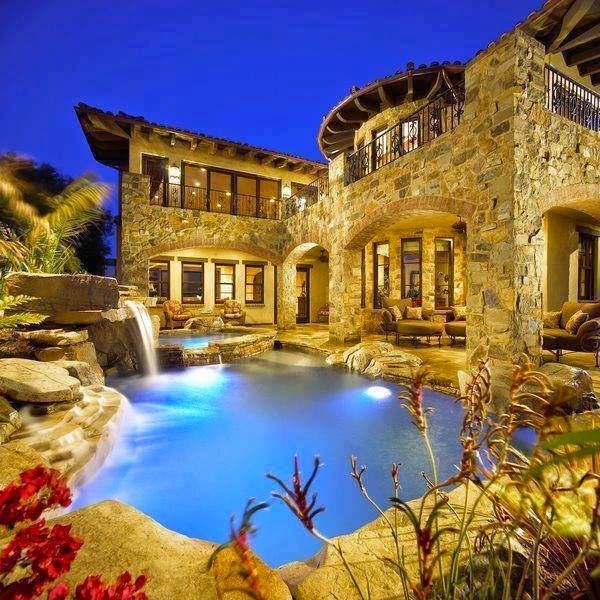
Cleaning of Marble: Dry the marble with a chamois cloth. Buff, it to +shine by rubbing the entire surface with the cloth in small circles. Cover the surface with commercial stone polish or marble-polishing paste if you want more shine after buffing with a chamois. If using a spray-on stone polish, wipe with a soft rag. It can create very antiques whereas granite has a more fleck-like, granular appearance but it can’t be stated as a rule. Based on its composition, natural stone has two general categories: Siliceous stone is composed mainly of silica or quartz-like particles. It tends to be very durable and easy to clean. Stones in this category are granite, slate, and sandstone. Calcareous stone is made of mainly calcium carbonate. It’s sensitive to acids, including cleaning products and foods like citrus fruits, vinegar, wine, tomatoes, etc. It requires different cleaning procedures than siliceous stone. These types of stones include marble, travertine, limestone, and onyx.
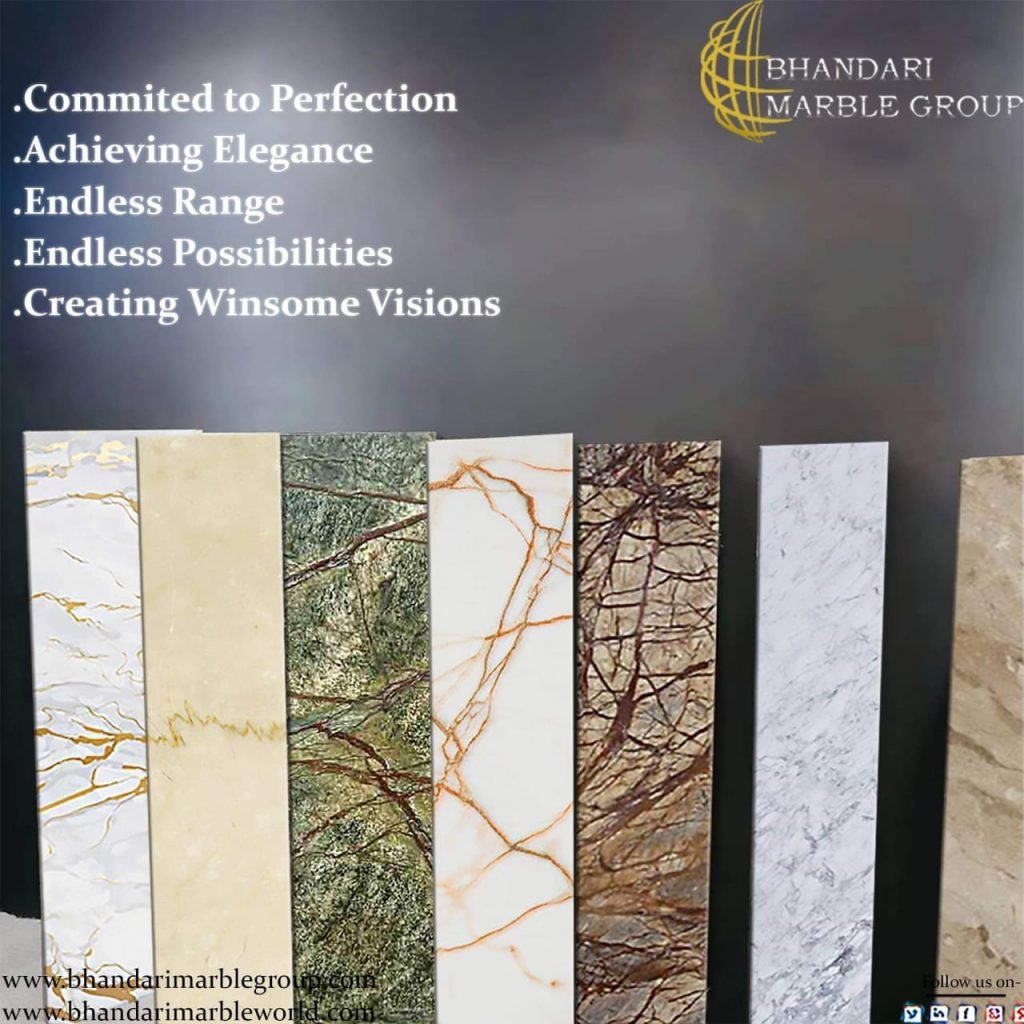
Granite Countertop by Kitchen ViewsBoldly patterned granite countertop. So which one should you choose? It all depends on the aesthetic you prefer and how much maintenance you’re willing to do. Though both are natural and quarried from the earth, they possess very different properties. The biggest difference between granite and marble is their porosity. Basically, Marble is one of those types which are very solid. Granite, whose crystalline structure makes it more resistant to abrasion, staining, and discoloration, is in fact, the strongest of all-natural stones. Granite is an igneous rock, which means it was once molten and formed as it cooled deep within the earth. The minerals contained in granite usually appear as small flecks throughout the stone. Marble, on the other hand, was once limestone that changed due to intense heat and pressure. This process altered its crystalline structure and introduced other minerals, which produce its characteristic veining.
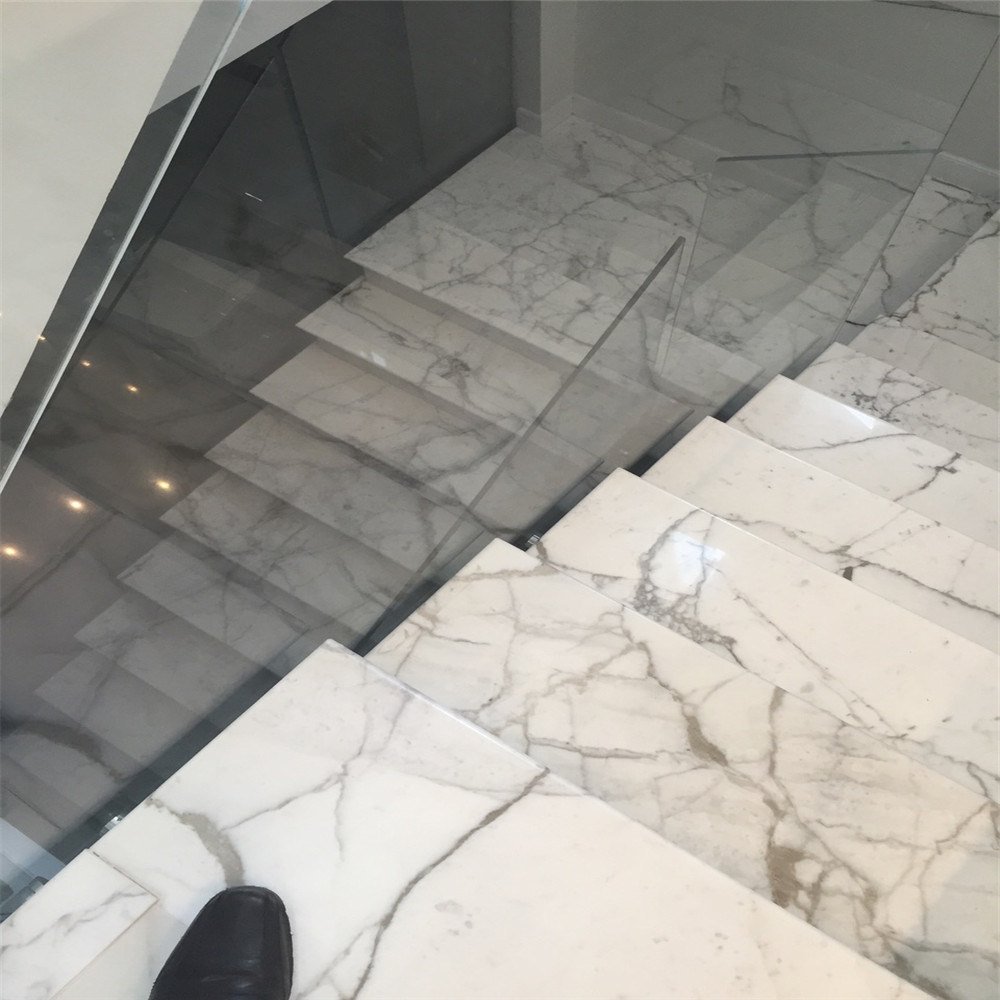
Stone, marble, and granite are hard, heavy, relatively heat and scorch proof, and come in a wide array of colors and patterns. Since both are created in nature, there can be drastic variations in color and pattern. In both cases, a display sample you see in-store may not be an accurate representation of your actual purchase. All marble, granite, and stones can come about through complex reactions in the earth that take millions of years, helping them achieve a look that is very much unlike any man-made material. Most of all, stone marble and granite make beautiful counter backsplashes, wall coverings, floor coverings, and more. They are both unique stones and can represent a very significant investment. Still have more questions about the differences between stone, marble, and granite? Let our stone experts at the Bhandari marble group walk you through the steps to choose which one is right for you. You’re always welcome to visit our factory outlet showrooms or visit us online.
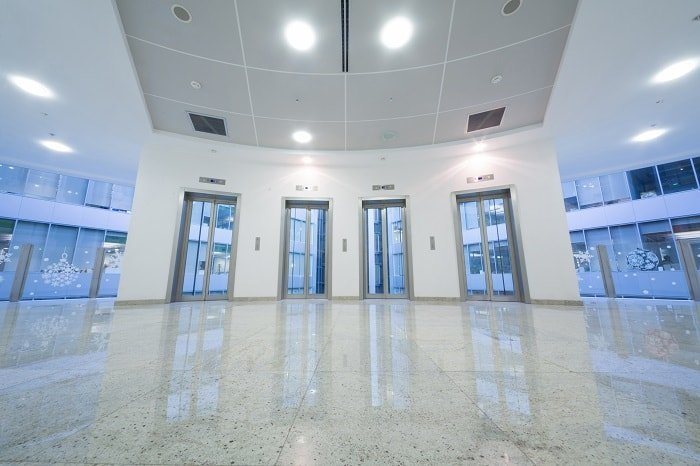
Granite is an igneous rock composed of mostly two minerals: quartz and feldspar. It is an intrusive rock, meaning that it crystallized from magma that cooled far below the earth’s surface. It forms from magma with a high content of silica and alkali metal oxides that slowly solidifies underground. It is common in the Earth’s continental crust, where it is found in bodies called plutons. Granite comes in at a 6 to 7 on the Mohs scale, meaning it is relatively hard. The igneous rock is comprised of mostly quartz and feldspar, along with smaller amounts of various other minerals. Granite is a colored plutonic rock found throughout the continental crust, most commonly in mountainous areas. It consists of coarse grains of quartz 10-50%, potassium feldspar, and sodium feldspar. These minerals make up more than 80% of the rock.
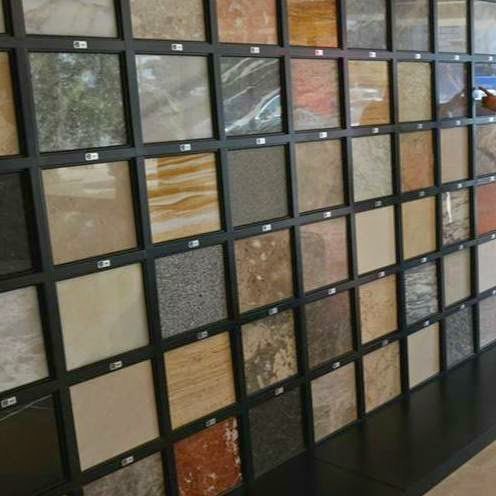
There are 3 different levels of granite. Level 1 Low-Grade Granite, Level 2 Mid-Grade granite, and Level 3 High-Grade Granite. The grade of the granite slab can be determined by colors, veins, pitting, marking, thickness, the number of soft materials it has, and the country where it was quarried. Granite is used in buildings, home, villa, hotel, Airport, Restaurant, hospital, Commercial malls, Towers, bridges, paving, monuments, landscaping, and many other interior and exterior projects. Indoors, polished granite slabs and tiles are used in countertops, tile floors, stair treads, and many other design elements. Granite is a prestige material, used in trunky projects to produce impressions of elegance and quality.
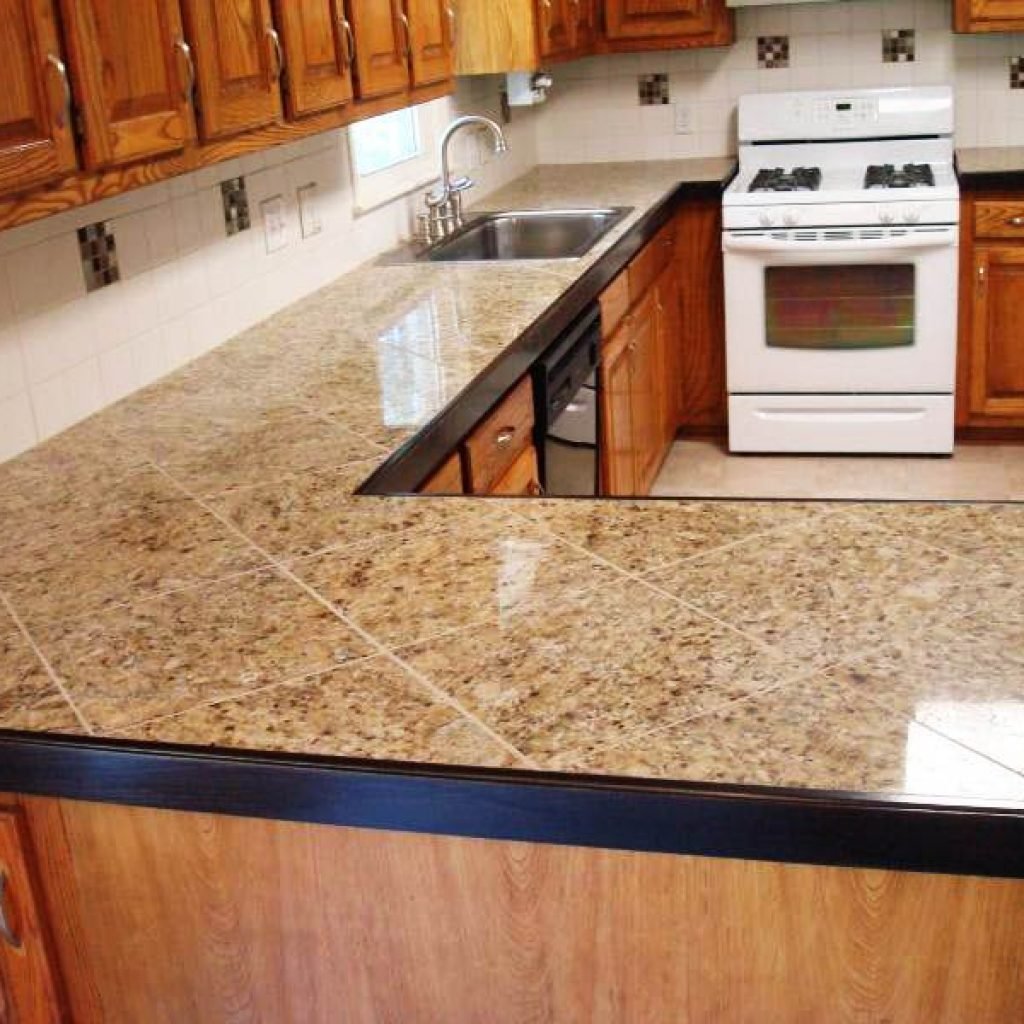
Granite is a natural stone product, there are great variances in the color, veining, and pattern of the stone. These variances can be found from one slab to another, and most definitely from shipment to shipment. Expensive granite prices can start from $20 to go over $100 per-square-foot just for the material alone. Granite is also superior when it comes to using in outdoor settings, and it is more resistant to scratches. Marble is more beautiful and status symbol than granite, keep it to your rarely used, formal areas, while durable, functional granite can be used for rough and tuff and marble for luxury anywhere in your home.
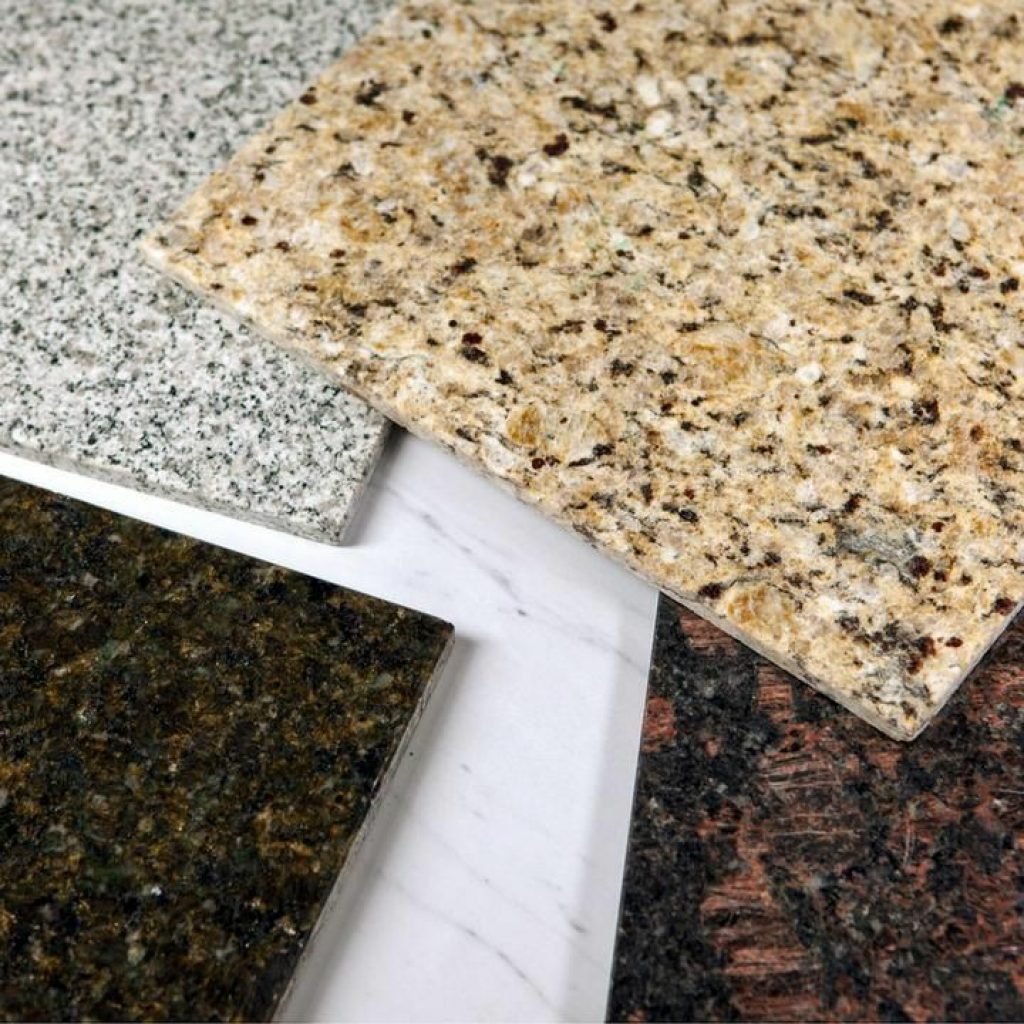
Top Granite
Black granite: It is an amazing deep grain black, which is quarried in India.
Black Galaxy Granite:- It is one of the best black granites which quarried in India.
Rajasthan Black Granite
White Granite
Tan Brown Granite
Alaska gold granite,
Alaska white granite,
Alaska Red granite,
Kashmir white granite, marry gold granite,
Volga Blue Granite,
Blue pearl granite,
Black pearl granite,
Desert brown granite,
Fantasy brown granite,
Lakha red granite,
Multy red granite,
Cristal blue granite,
Cristal yellow granite,
Multy red granite,
Jhansi Red granite,
P white granite,
S white granite,
China white granite,
R Black granite,
Rosy pink granite,
Chima pink granite,.
Kharda Red granite,
Blue granite,
Kashmir White Granite. The Kashmir White Granite is a highly durable and glossy material.
Platinum White Granite. The Platinum White is a very bright material and perfect for budget flooring.
Absolute Black Granite.
Black Galaxy Granite.
Crystal Yellow Granite.
Tan Brown Granite.
Rosy Pink Granite.
Rajasthan Black Granite. You’ll typically find that white granite slabs are the least expensive and that black granite tends to be higher in cost. Yet, black and white are both the two most popular choices in granite colors.
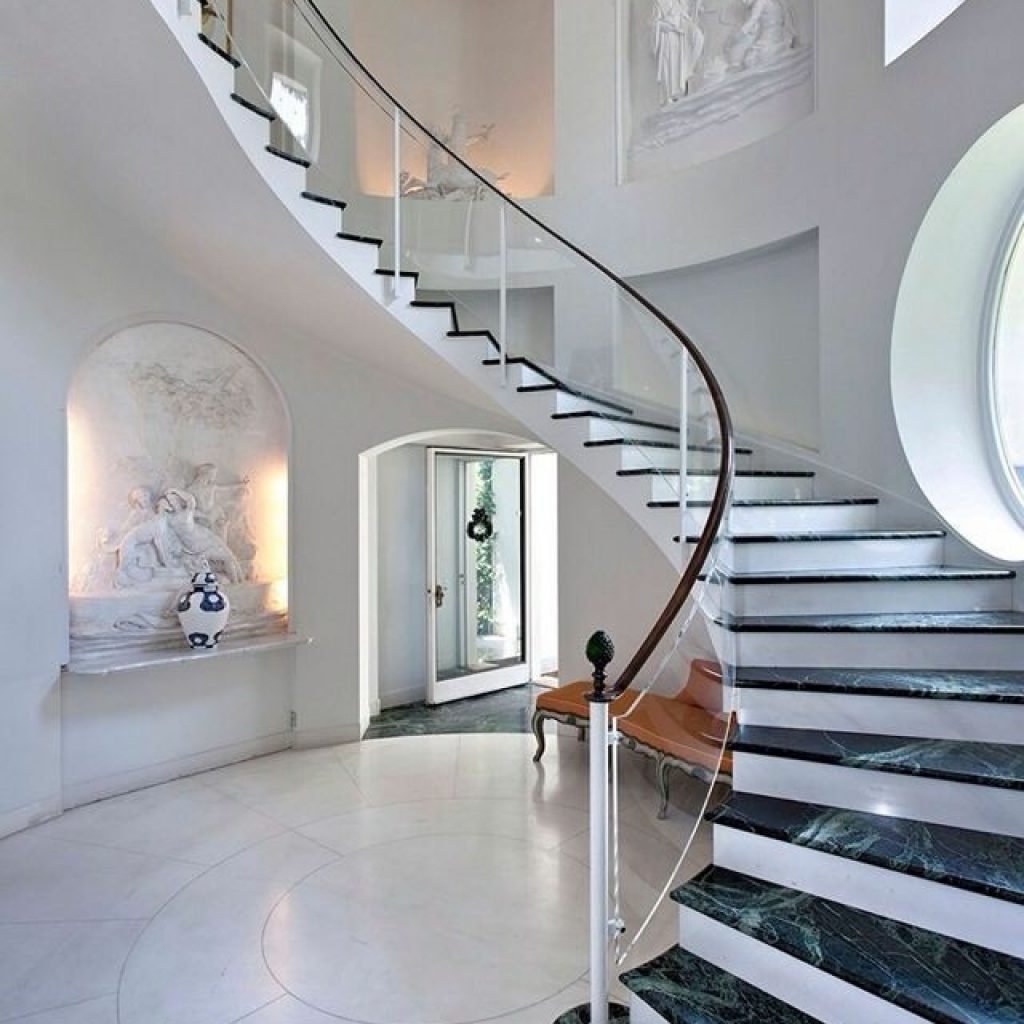
Stone
All stones used in
Science
Medicine
Jewelry
Games
Furniture
Measure
noun
hard solid non-metallic mineral matter of which rock is made, especially as a building material.
“the houses are built of stone”
a piece of stone shaped for a purpose, especially one of commemoration, ceremony, or demarcation.
“a memorial stone”
Stone used to form entire structures, stone is greatly valued for its aesthetic appeal, durability, and ease of maintenance. The most popular types include granite, limestone, sandstone, marble, slate, gneiss, and serpentine.
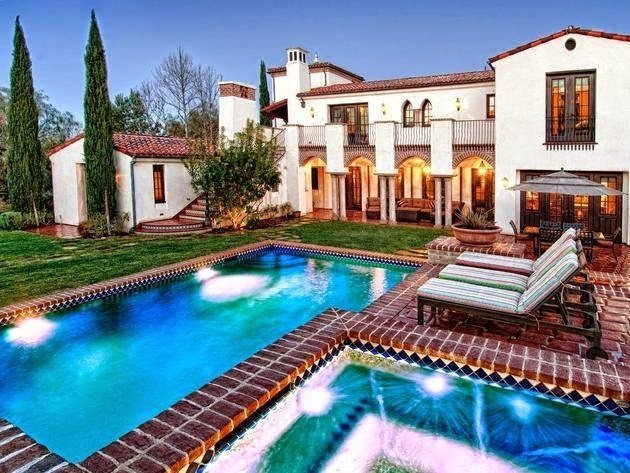
Other names of stone
A piece of rock found on the ground
A large piece of stone formed for ceremonial purposes
A rock or stone used for paving or roofing
A small piece of rock found on the ground
rock pebble
boulder gravel
blondie cobble
concretion scree
cobblestone crag
grain grit
nugget sarsen
cairn block
shingle granule
stepping stone mass
slab goolie
rubble pellet
Boulders gibber
gibber stone talus
stones rock debris
A large piece of stone formed for ceremonial purposes
gravestone headstone
monument tombstone
monolith obelisk
tablet memorial
plaque marker
slab cenotaph
panel plate
grave marker sign
keystone cairn
statue shrine
mausoleum trophy
brass memorial stone
relic stele
bust pillar
tomb barrow
burial mound column
keepsake dolmen
cromlech commemoration
megalith memento
commemorative henge
souvenir remembrance
reminder cross
token chorte
Sepulchre
pile tower
erection Sepulcher
stone circle ledger
tribute masterpiece
magnum opus
A rock or stone used for paving or roofing
flagstone slab
cobblestone flag
sett cobble
paving stone tile
paver paving slab
block cut stone
stone block
A precious stone, such as a gem or jewel
gem gemstone
jewel rock
bijou brilliant
sparkler precious stone
semi-precious stone baguette
cabochon ornament
bauble hardware
glass semiprecious stone
cut stone Jewelry
solitaire nugget
Jewelry trinket
ring crystal
bead birthstone
earring brooch
tiara bracelet
necklace choker
Gullion accessory
diamond single stone.
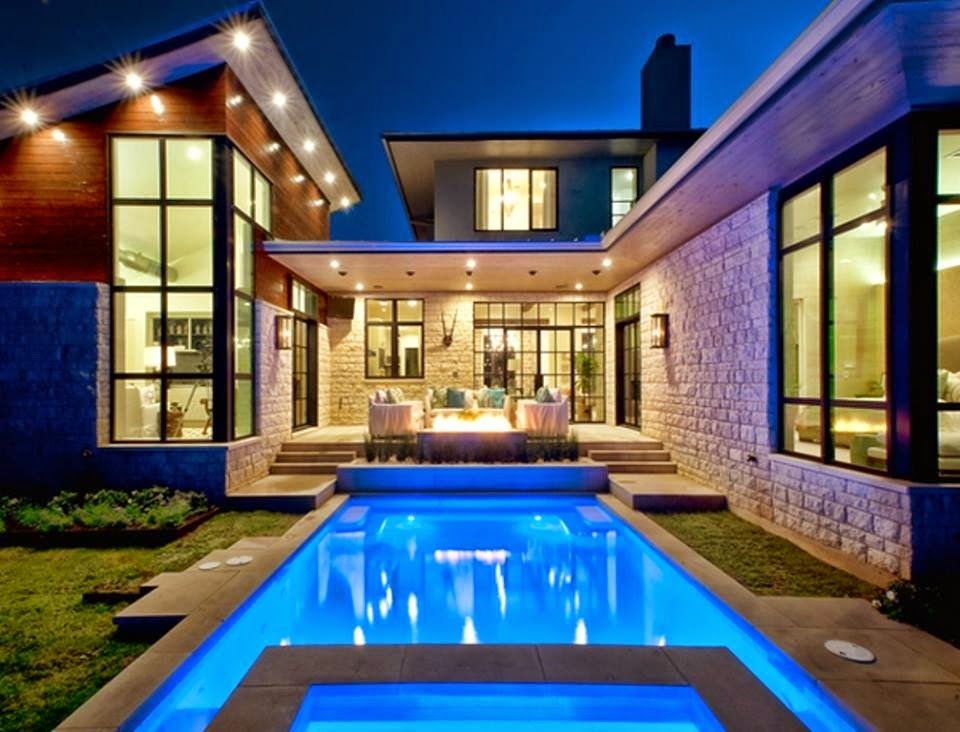
Explanation: in geology, a boulder is a rock fragment with a size greater than 25.6 centimeters (10.1 in) in diameter. … In common usage, a boulder is too large for a person to move. Smaller boulders are usually just called rocks or stones. When used as nouns, pebble means a small stone, especially one rounded by the action of water, whereas stone means a hard earthen substance that can form large rocks. When used as verbs, pebble means to pave with pebbles, whereas stone means to pelt with stones, especially to kill by pelting with stones. The Stone Age began about 2.6 million years ago when researchers found the earliest evidence of humans using stone tools and lasted until about 3,300 B.C. when the Bronze Age began. It is typically broken into three distinct periods: the Paleolithic Period, Mesolithic Period, and Neolithic Period.
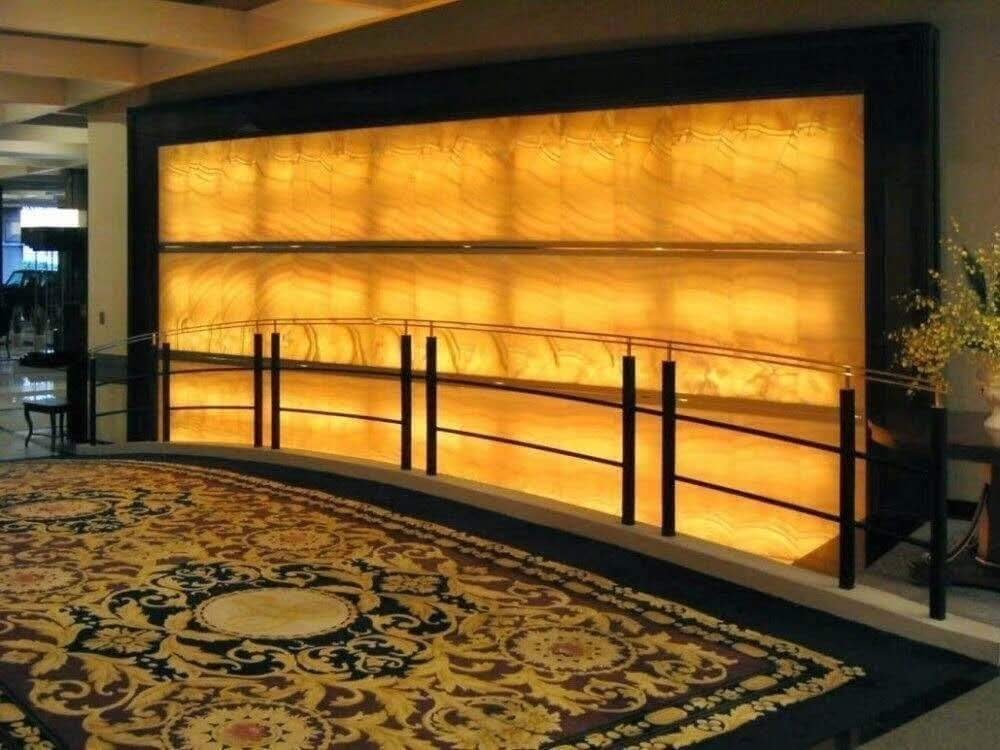
Rock layers are also called strata and stratigraphy is the science of strata. Stratigraphy deals with all the characteristics of layered rocks; it includes the study of how these rocks relate to time.
A rock is any naturally occurring solid mass or aggregate of minerals or mineraloid matter. It is categorized by the minerals included its chemical composition and the way in which it is formed. Rocks are usually grouped into three main groups: igneous rocks, metamorphic rocks, and sedimentary rocks
Rocks are composed of grains of minerals, which are homogeneous solids formed from a chemical compound arranged in an orderly manner. The aggregate minerals forming the rock are held together by chemical bonds
rocks and sediments are picked up and moved to another place by ice, water, wind, or gravity. Mechanical weathering physically breaks up the rock. Over timepieces of rock can split off a rock face and big boulders are broken into smaller rocks and gravel
Stone is a piece of rock. It is a mass of hard, compacted mineral. The word is often used to mean a small piece of rock the hard substance, formed of mineral matter, of which rocks consist. a rock or particular piece or kind of rock, as a boulder or piece of agate. a piece of rock quarried and worked into a specific size and shape for a particular purpose: paving stone; building stone
The familiar stone types that are used today are identified through four categories: SEDIMENTARY, METAMORPHIC, IGNEOUS STONE, and ARTIFICIAL. Sedimentary stone came from organic elements such as glaciers, rivers, wind, oceans, and plants. It is essential to know the types of driveway stone available so you can make the right selection. It is also vital to be conversant with the gravel size chart. Choosing the best gravel for your driveway is crucial; otherwise, you will end up with a poor installation. The various types of gravel available include:
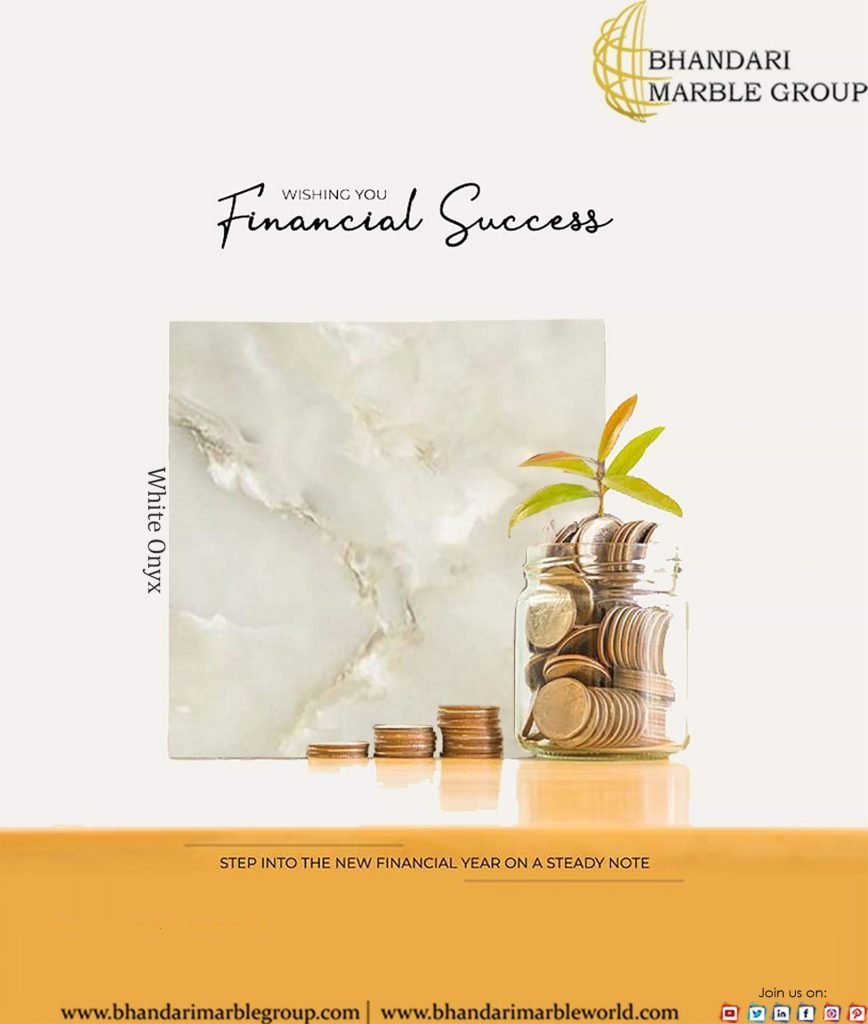
1) Crushed Stone
Crushed Stone gravel
Crushed stone refers to a mixture of small rocks and coarse sand. There are different types of crushed stone for driveways, and they come in different colors and sizes. Crushed stone is quite versatile, durable, and affordable, making it an excellent option for gravel driveways. It is the best material for gravel driveways. It can be used for either the base, second, or top layer forming the gravel driveway. Before you make use of crushed stone, you need to be familiar with its size chart. The #57 crushed stone is the most popular type of crushed stone. It is preferred because its angular shape promotes good drainage. It also prevents the rocks from sticking together. It is often used as the second layer of a gravel driveway. It could also be used for concrete mix, drainage, and landscaping. The #411 crushed stone is also another preferred choice for gravel driveways. It is smaller and finer in texture than the #57 stone. It is a combination of coarse stone dust and #57 stone. Because of its finer texture, it is used to fill the top layer of the driveway. It also forms a solid surface that vehicles can drive across easily. In other words, it helps to create a stable crushed gravel driveway.
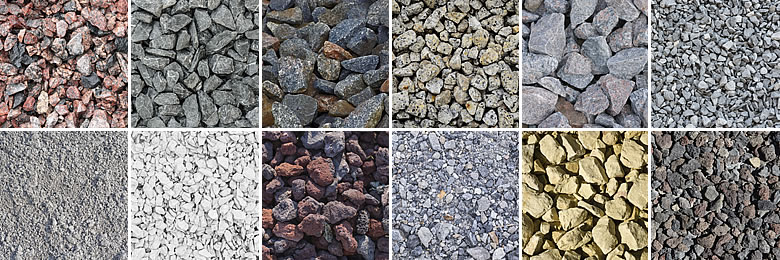
2) Stone Dust
stone dust gravel
It is also called stone screenings. It is the finest type of crushed stone available. As the name implies, it consists of stones that have been crushed into a fine powdery form like dust. It could be used on its own or combined with larger stones. When it is used by itself, it forms a hard, water-resistant surface. When it is combined with larger stones, it forms an excellent binding agent. Stone dust is usually combined with other stones to create the top layer of gravel driveways. It is also used to bind asphalt or cement for sidewalks and roads. An advantage of stone dust is that it prevents weeds and mold from growing on your driveway.
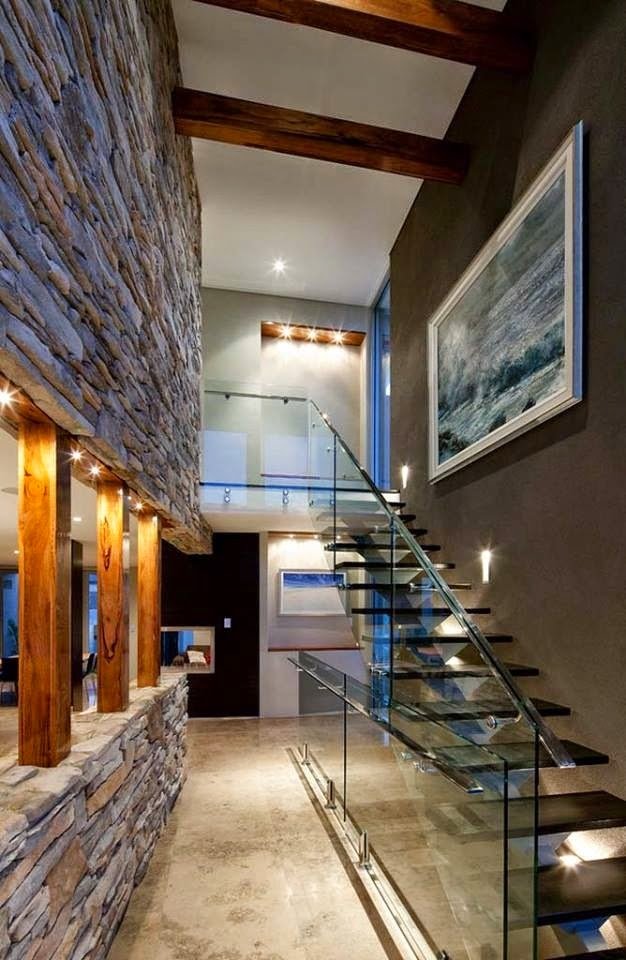
3) Pea Gravel
Pea Gravel
It is also known as pea shingle. It is made up of small, smooth stones that are perfect for forming the top layer of a gravel driveway. This is because of its smooth texture and aesthetic appeal. It is usually 3/8” in size. Pea gravel comes in a variety of colors, such as brown, grey, blue, and red. Unlike crushed stone which is angular in shape, pea gravel is round. This round shape makes it harder for it to be locked in place. Unless some form of edging is used to keep it in place, driving across it might not be so easy.
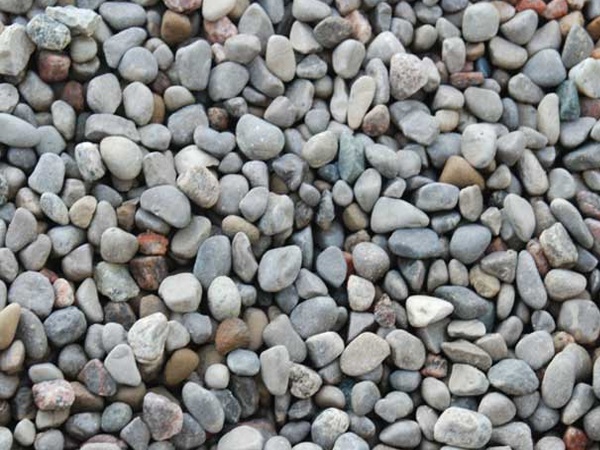
4) Item #4
This is also another popular type of driveway rock. It is a combination of sand, dirt, and crushed stone. Because of its texture and size, it is used to form the base layer of the driveway. There are different compositions of this type of gravel, such as gravel made from recycled concrete, rocks, bricks, crushed bluestone, and limestone. It could also be made from grey gravel.
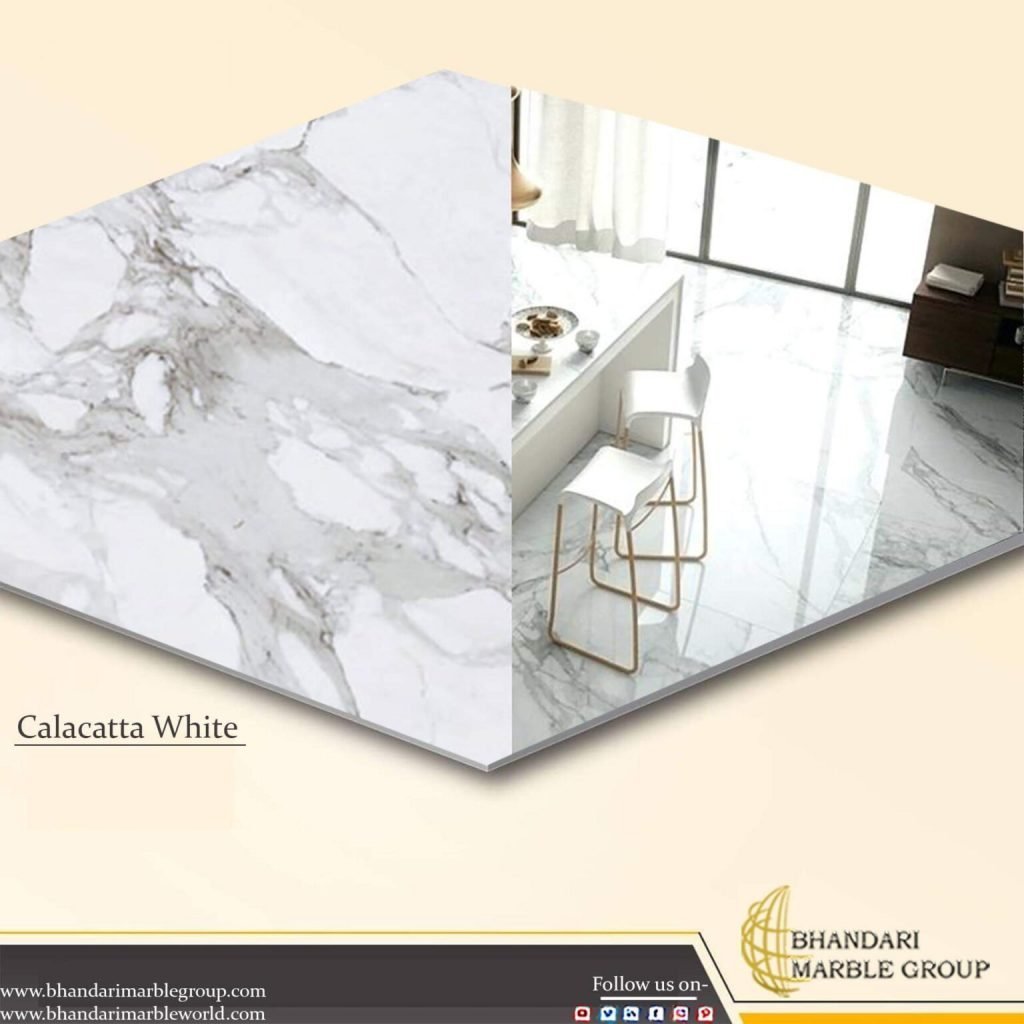
5) Jersey Shore Gravel
It is made up of tiny yellow, tan, gold, and white stones that resemble sand on the beach. It usually forms the top layer of gravel driveways in the Mid-Atlantic state and all over New England. It is a preferred choice because of its aesthetic appeal. This type of gravel has a tranquil feel about it that helps create a welcoming atmosphere. It is similar to pea gravel in size and shape. Just like pea gravel, Jersey shore gravel requires a driveway edging to keep it in place.

6) River Rock
It is also called creek stone. It is made up of round, semi-polished stones that have been scooped from river or stream beds. Because of its smooth texture which makes it shift around, it is not the best material for gravel driveways. However, because of its aesthetic appeal, it is usually used as the top layer of the gravel driveway. The best way to design a river rock driveway is to use the stones as edging material to keep other types of top layer rocks in place.
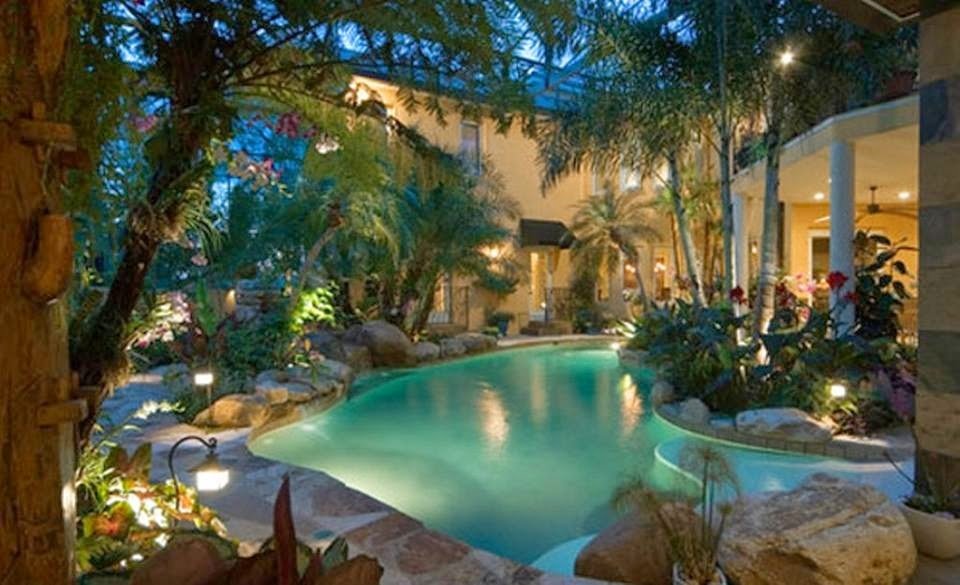
7) Quarry Process Stone
It is also known as dirty stone, crusher run, shoulder stone, QP, dense grade aggregate, and ¾ blended stone. It is a mixture of stone dust and three-quarter inch crushed stone. It is mostly made out of crushed granite, limestone, or trap rock. The pieces bind together to form compacted gravel. This kind of gravel is strong and durable, making it an excellent option for the top layer of the gravel driveway. If you decide to use this kind of gravel, you should ensure that the middle of the driveway is higher than the sides. This structure would facilitate proper drainage and minimize damage to the driveway. It’s always a good idea to have a CCTV drain survey to get the best understanding of how your current driveway drain system is working.
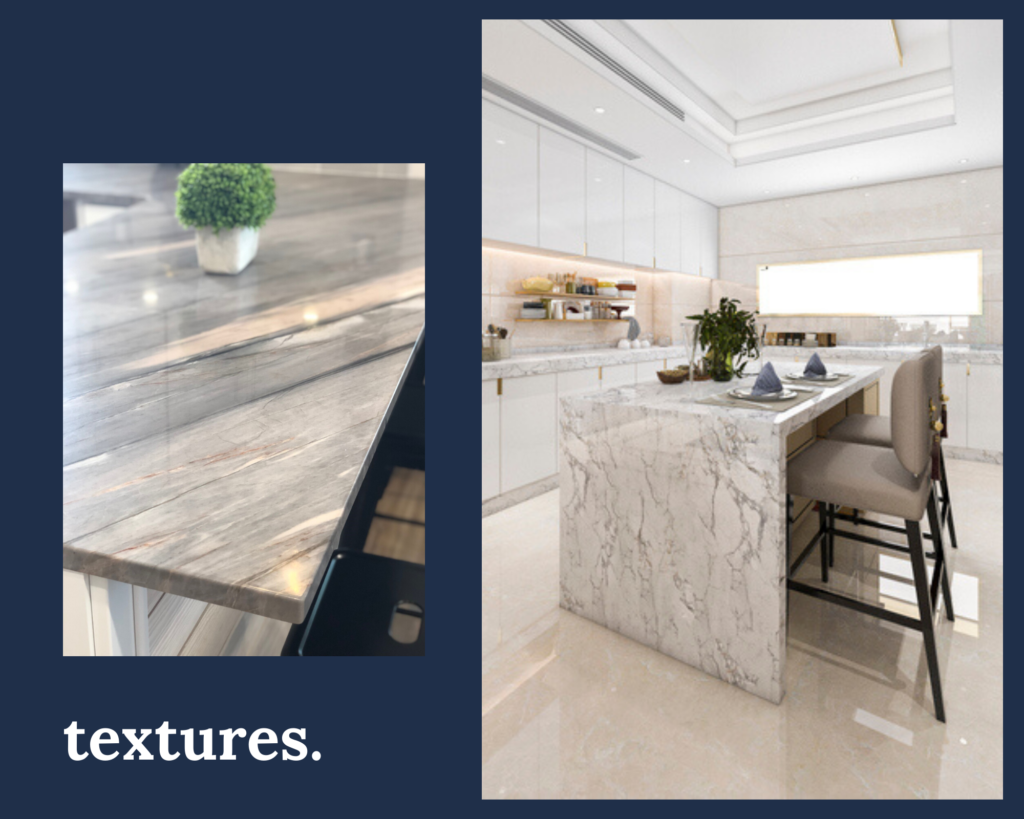
8) White Marble Chips
They are commonly used as the top layer of gravel driveways and walkways. They are not purely white but have grey streaks, which make them more attractive. They come in different shapes and sizes. Also, they sparkle and shimmer in the sun. This sparking effect makes them seem quite elegant and aesthetically appealing. It also helps to prevent the property from being too hot. Thus, they are one of the best driveway gravel. Just like pea gravel, marble chips need a driveway edging to hold them in place and prevent them from being washed away. The downside with this gravel stone is that it is usually more costly than the other types.
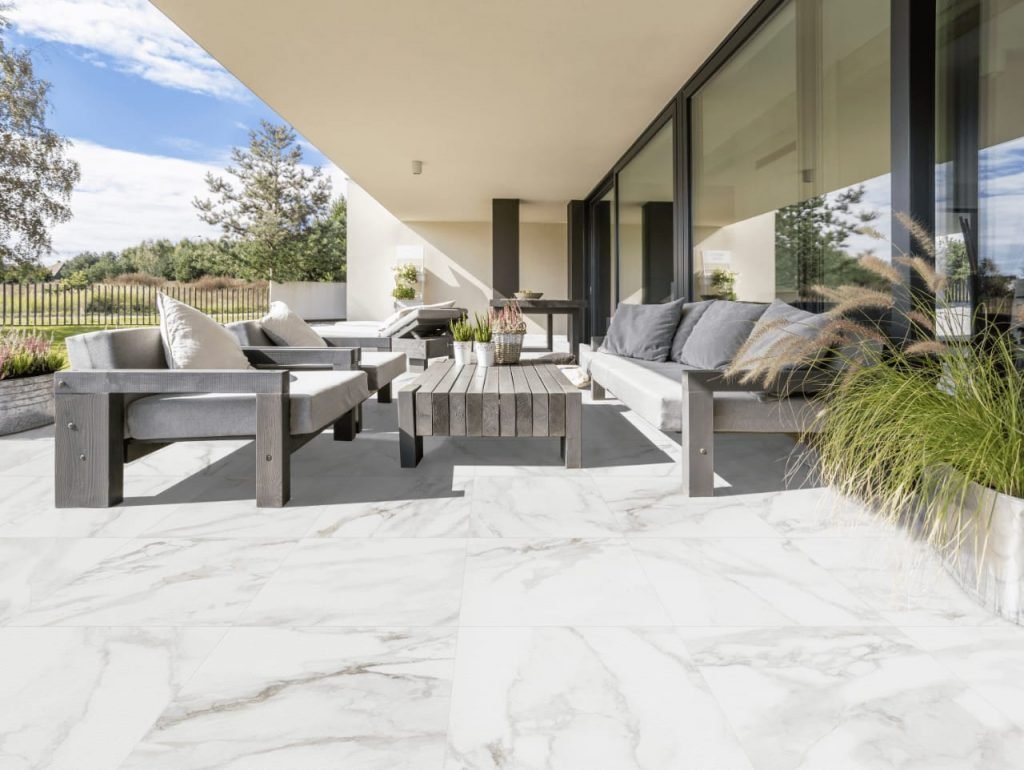
9) Base Gravel #3
As the name implies, this type of gravel is an excellent option for filling the base layer of your driveway. It is the best gravel for creating the driveway base. It is another type of crushed stone but is larger. It can be up to 2 or more inches in diameter.
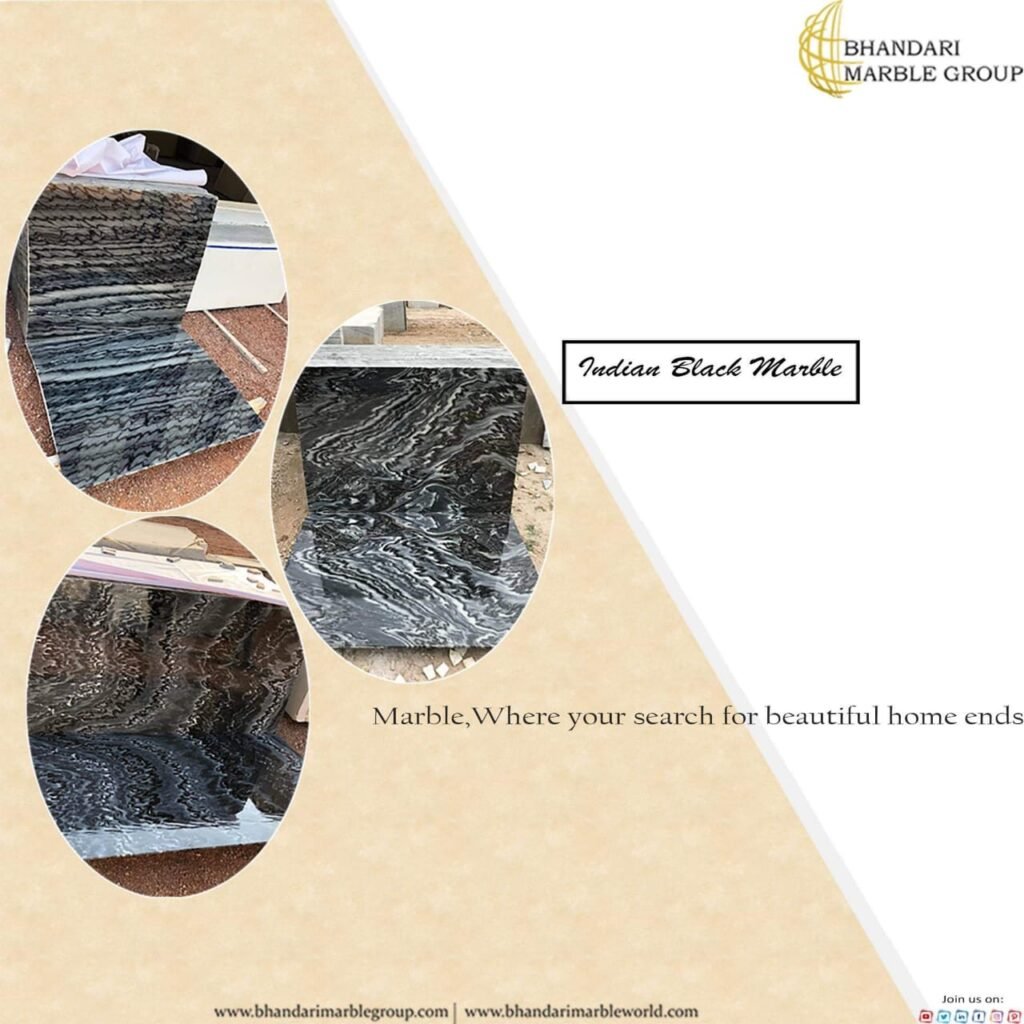
10) Washed Clean Stone
It is like a crushed stone in texture. The only difference is that it is cleaner than crushed stone, thus making it more attractive. Depending on the size, it can be used to form the middle or top layer of the driveway. Tips For Laying A Gravel Driveway
Selecting the best gravel type and sizes are only one part of the process of installing a gravel driveway. There are so many other things you should do to ensure that your gravel driveway is properly installed. We have compiled some tips that could be useful in helping you create a solid and attractive driveway they are:

Seek Professional Advice: If you are unsure as to what type or size of gravel would be the best to use, talk to experts. Seeking professional advice also helps you have a pretty accurate estimate of how much gravel material would be required.
Prepare the site to be used beforehand: Until this has been done, you must not lay your gravel driveway. You need to clear the land of weeds, grass, and debris. You also need to remove the topsoil off the ground, leaving only hard rocks that would make your driveway more durable.
Ensure that you have good drainage: If you do not have good drainage, your driveway would be damaged. The gravel pieces would become loose and start to separate. Eventually, the gravel would sink into a mud hole. The simple solution to prevent this from happening is to insert a layer of geotextile fabric between the subsoil and the base of the driveway.
Make use of driveway borders or edgings where necessary: Some gravel types would not form stable driveways because of their sizes and textures. Therefore, it would be necessary to make use of edgings to hold them in place and create a solid ground for your vehicle to drive.
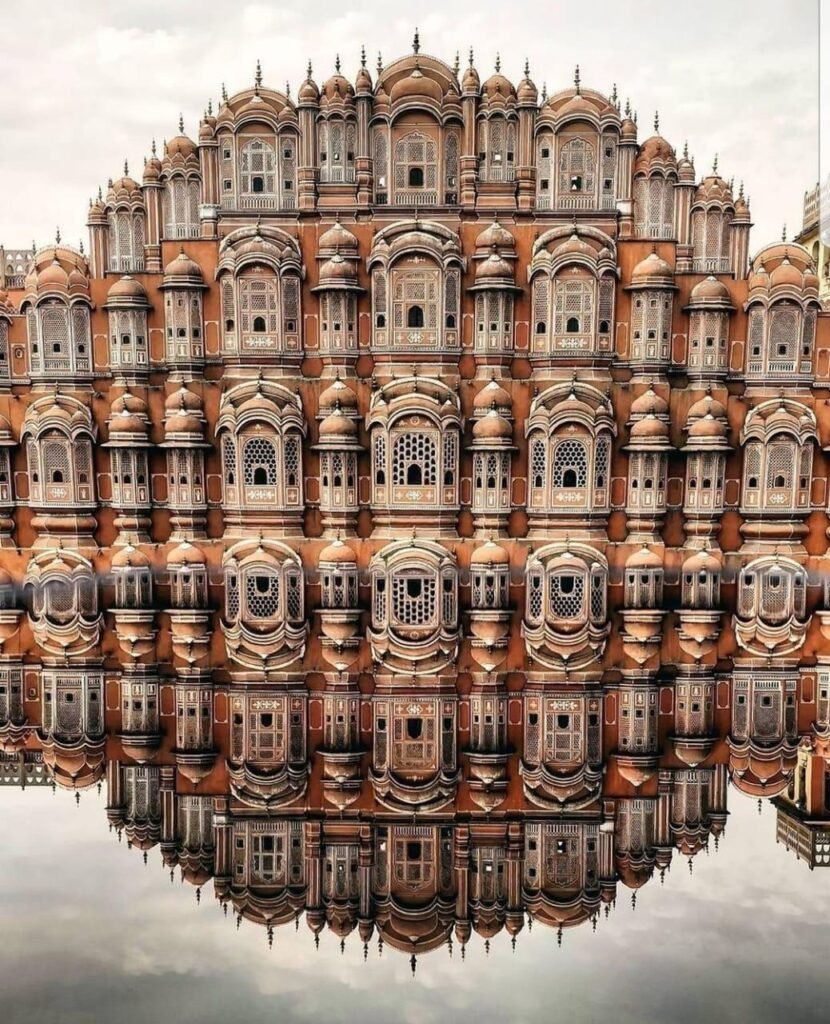
ADD BY EXPERT AND EXPORT TEAM OF BHANDARI MARBLE GROUP. CONTACT US ON; 9672941111.






